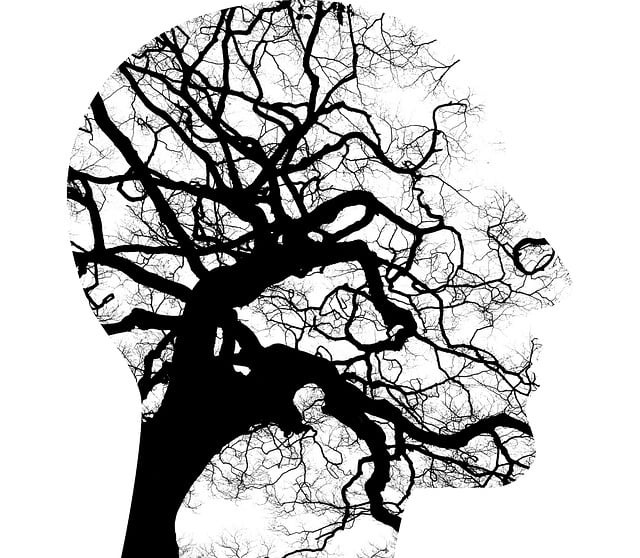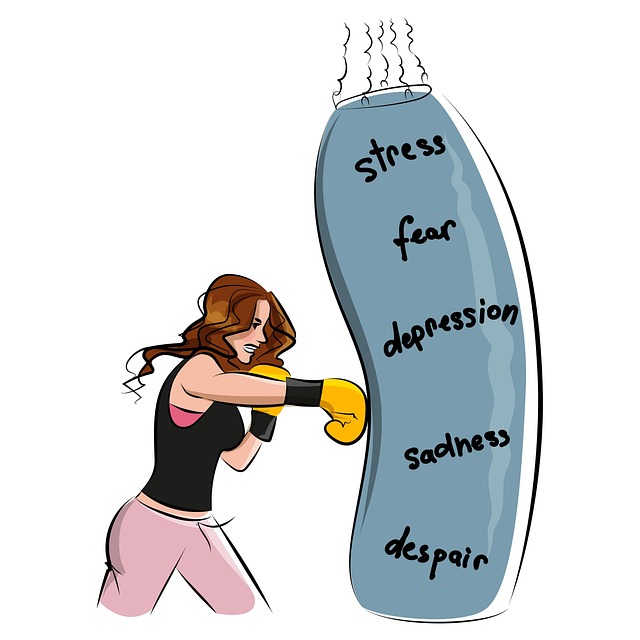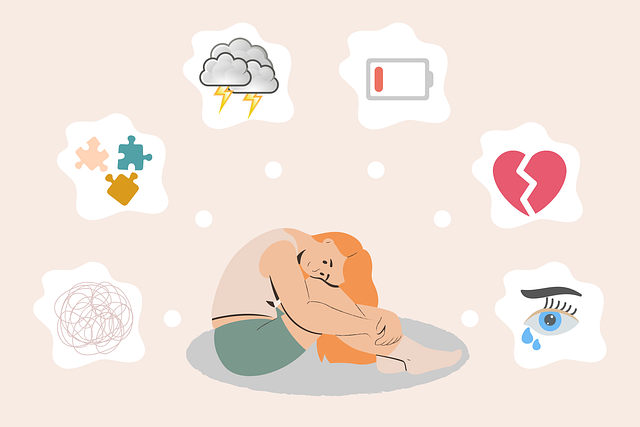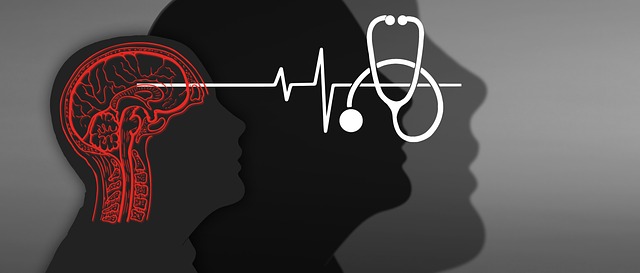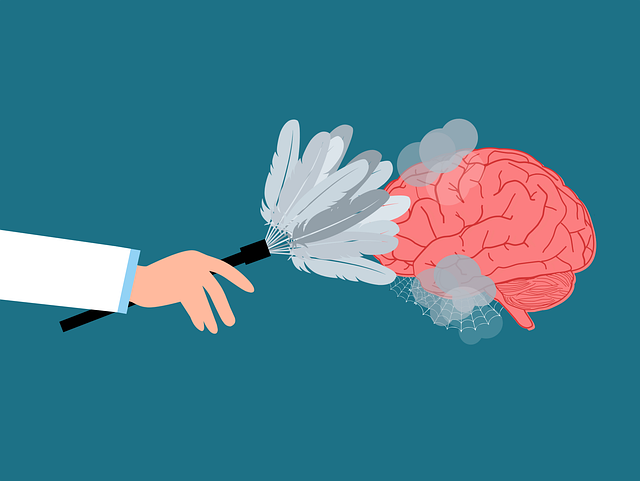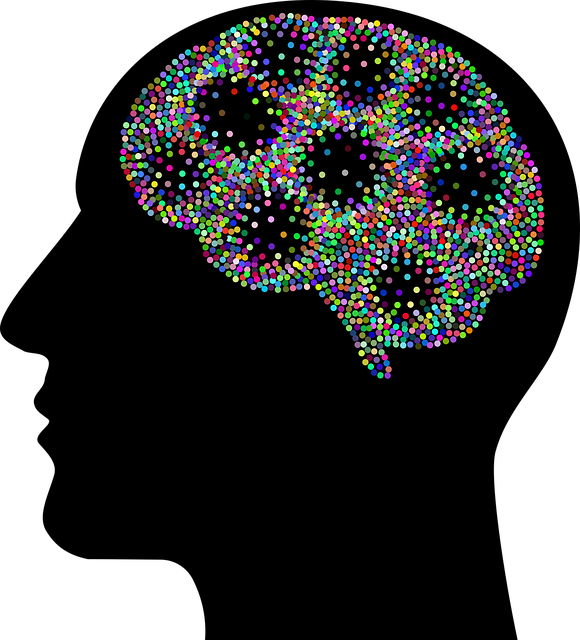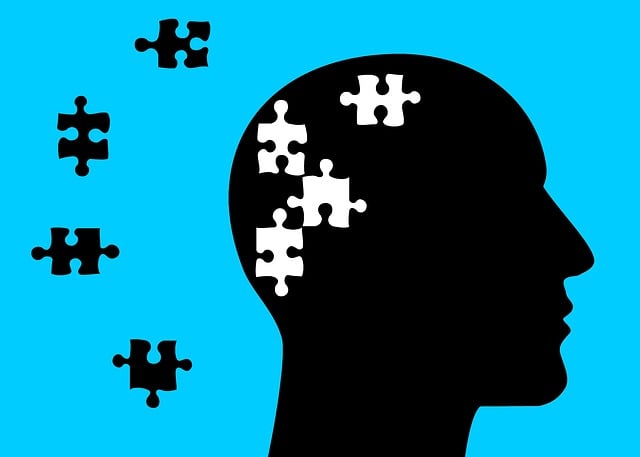Stress management plays a pivotal role in mitigating ADHD/ADD symptoms and enhancing overall well-being. Superior ADD-ADHD therapy involves tailored strategies such as Cognitive Behavioral Therapy (CBT), which targets negative thought patterns, and mindfulness practices like meditation to promote tranquility and self-awareness. Physical activity, through its stress-reducing effects and cognitive benefits, is a powerful adjunct to these therapeutic approaches. Creating a soothing environment through balanced diets and sleep routines further supports stress reduction, fostering emotional intelligence and adaptability. By integrating these holistic methods, individuals can achieve better symptom management and improve their quality of life.
Stress reduction is essential for managing ADD-ADHD, as chronic stress can exacerbate symptoms. This article explores effective methods to mitigate stress and improve overall well-being. We delve into evidence-based practices such as Cognitive Behavioral Therapy (CBT), mindfulness, physical activity, and environmental adjustments. By incorporating these techniques, individuals with ADD-ADHD can experience significant improvements in focus, mood, and quality of life. Discover superior ADD-ADHD therapy through stress reduction strategies tailored to your needs.
- Understanding Stress and Its Impact on ADD-ADHD
- Cognitive Behavioral Therapy: A Powerful Tool for Stress Reduction
- Mindfulness and Meditation Techniques to Calm the Mind
- Physical Activity and Exercise: Unleashing Stress Relief Endorphins
- Creating a Soothing Environment: From Diet to Sleep Routine
Understanding Stress and Its Impact on ADD-ADHD

Stress is a natural response to various life challenges, but it can significantly impact individuals with Attention-Deficit/Hyperactivity Disorder (ADHD) or Attention Deficit Disorder (ADD). Understanding the effects of stress on this population is essential in providing superior ADD-ADHD therapy. When stressed, ADHD symptoms may intensify, leading to difficulties in focus, impulse control, and hyperactivity. This can make daily tasks more challenging and negatively impact overall functioning.
Effective management of stress involves a combination of strategies tailored to each individual’s unique needs. Healthcare providers specializing in ADD-ADHD often incorporate communication strategies and risk management planning into their practice, ensuring a culturally competent approach. These methods empower individuals with ADHD/ADD to develop coping mechanisms, improve self-regulation, and enhance their overall quality of life. By addressing stress proactively, professionals in the field can better support patients on their journey towards better mental health outcomes.
Cognitive Behavioral Therapy: A Powerful Tool for Stress Reduction

Cognitive Behavioral Therapy (CBT) is a highly effective method for stress reduction and managing anxiety. This form of therapy focuses on identifying and changing negative thought patterns that contribute to stress and distressing emotions. By challenging and modifying these thoughts, individuals can gain a more positive outlook, leading to improved overall well-being. CBT is particularly beneficial for those dealing with ADD/ADHD symptoms, offering superior strategies to enhance focus, organization, and impulse control.
Through CBT, individuals learn valuable communication strategies and conflict resolution techniques, enabling them to navigate challenging situations with greater ease. Additionally, the therapy fosters inner strength development, empowering people to cope with stress in healthier ways. By combining these elements, CBT provides a comprehensive approach to stress reduction, helping individuals lead happier and more balanced lives.
Mindfulness and Meditation Techniques to Calm the Mind

Mindfulness and meditation have emerged as powerful tools for calming the mind and reducing stress. These techniques, often touted as superior ADD-ADHD therapy, encourage individuals to focus on the present moment, rather than dwelling on past mistakes or worrying about the future. By cultivating self-awareness through exercises like deep breathing and mindful observation, one can achieve a state of tranquility and clarity.
Stress Management Workshops Organization often incorporates mindfulness and meditation practices into their programs, as they effectively target anxiety relief and promote overall mental well-being. These workshops provide structured environments where participants learn specific techniques to navigate stressful situations with greater ease. By integrating self-awareness exercises into daily routines, individuals can better manage stress, improve focus, and enhance overall quality of life.
Physical Activity and Exercise: Unleashing Stress Relief Endorphins

Physical activity and regular exercise have been proven to be powerful tools in stress reduction, offering a natural and effective way to combat everyday tension. When we engage in physical movement, our bodies release endorphins, often referred to as “feel-good” hormones. These endorphins act as natural painkillers and mood elevators, providing a sense of calm and relaxation. Whether it’s a brisk walk, a yoga session, or an intense workout at the gym, these activities help clear our minds and reduce the levels of stress hormones like cortisol.
Incorporating physical activity into your routine can significantly improve your overall well-being, especially for those managing conditions such as ADD/ADHD. It aids in mood management by promoting emotional regulation and can even be a superior therapy alternative for some. Beyond stress relief, regular exercise contributes to better sleep, increased energy levels, and enhanced cognitive function, all of which are essential components in reducing the impact of mental illness and stigma reduction efforts.
Creating a Soothing Environment: From Diet to Sleep Routine

Creating a soothing environment is a powerful tool for stress reduction, encompassing both physical and mental aspects. A significant part of this involves shaping your daily routines, starting with diet and sleep. Incorporating calming foods known for their stress-busting properties can significantly impact your mood and energy levels throughout the day. Foods rich in omega-3 fatty acids, such as salmon, walnuts, and flaxseeds, are renowned for promoting emotional healing processes and enhancing overall well-being.
A consistent sleep routine is equally vital. Prioritizing quality rest supports burnout prevention, allowing your mind and body to recharge. Establish a relaxing bedtime ritual that prepares you for slumber; this might include dimming the lights, practicing deep breathing exercises, or engaging in light meditation. These simple yet effective habits contribute to emotional intelligence by teaching your body to recognize and respond to stress more adaptively, potentially offering a calming effect even in challenging situations.
In conclusion, managing stress is a vital component of superior ADD-ADHD therapy. By understanding its impact and employing evidence-based methods like Cognitive Behavioral Therapy, mindfulness practices, physical activity, and optimizing our environment, we can significantly reduce stress levels. These strategies not only enhance overall well-being but also improve focus, productivity, and quality of life for individuals navigating the challenges of ADD-ADHD.

